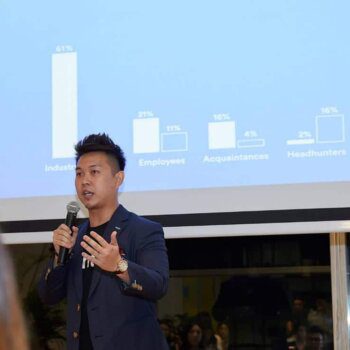Tech companies are facing a growing tsunami of social and ethical risks, and it’s one that they’re desperately ill-prepared to face. Yet by embracing new and emerging ideas around risk and responsibility, there’s no reason why they can’t learn to ride this wave.
As new technologies become increasingly intertwined with emerging social trends, technology companies are having to learn how to navigate an increasingly complex and convoluted risk landscape. And as companies like Facebook, Uber, Apple, and others are learning, this is not easy.
It’s exactly this challenge that the Palo Alto-based Institute for the Future and the Omidyar Network set out to address with the just-released “Ethical OS Toolkit”. The toolkit is designed to help tech innovators “anticipate the long-term social impact and unexpected uses of the tech we create today” by identifying emerging areas of risk and social harm, sparking conversations and prompting ethical actions.
“To navigate a radically shifting risk landscape, businesses, governments, not-for profits, consumers, and others, need equally radical innovation in how to think about and act on risk”— ASU Risk Innovation Lab
The Ethical OS Toolkit is a much-needed resource in a sector that’s behind the curve when it comes to social and ethical risks. But it still falls short of providing everything tech companies need to survive in today’s shifting social environment.
Rethinking Risk
For many years now, my work has focused on emerging risks associated with technologies that span nanotechnology and gene editing to self-driving cars and artificial intelligence. And over this time, it’s become increasingly clear that developers and manufacturers need a total reboot in how they think about risk.
It’s no longer enough for tech companies to simply state that their products are “safe enough”, and that they comply with relevant regulations. Rather, they are increasingly expected to affirm that their products don’t threaten livelihoods and lifestyles; that they don’t disadvantage and discriminate against minorities and others; and that they don’t threaten people’s beliefs and aspirations. These are critical threads in the fabric of society, and they present social risks that can make or break a company if they’re ignored.
Yet they are often poorly understood.

Of course, being socially responsible and financially successful is a daunting challenge — especially for entrepreneurs desperately trying to find a foothold in a fickle market. Yet the harsh reality is that companies that do not attempt to rise to this challenge, or that cynically put on a shallow façade of social responsibility, risk failure.
It’s social risks like these that the Ethical OS toolkit begins to address. But to be successful, tech companies are going to have to look even more broadly at how they potentially threaten what’s important to others within society — and in doing so bump up against social risks — and how this may in turn threaten their business.
Connecting Expertise to Emergent Challenges
The good news is that there’s a wealth of expertise available that entrepreneurs, startups, established businesses, and others, could and should be tapping into to navigate this increasingly complex social risk landscape. Much of this resides in organizations that study responsible innovation, including my own academic home in the Arizona State University School for the Future of Innovation in Society.
Here, researchers are exploring how businesses can innovate responsibly while remaining competitive, and how partnerships and collaborations can lead to products that combine technological and business savvy with social responsiveness. This includes research in my own Risk Innovation Lab, where we’re developing innovative ways of thinking and acting on risk that can help technology companies be successful and socially responsible.
Looking to the future, the social and ethical risks that tech companies face are only going to get tougher. Yet if these businesses begin to innovate in how they think and act on risk — whether by using tools like Ethical OS, partnering with experts, or recalibrating their corporate mindset — there’s no reason why they cannot ride this wave of social risk.
They may even find that a risk reboot gives them the competitive edge they need to thrive in today’s socially complex world.
About the Author
This article was written by Andrew Maynard, director of the ASU Risk Innovation Lab & author of “Films from the Future” — a unique take on future tech & ethical innovation http://bit.ly/filmsfromthefuture





























